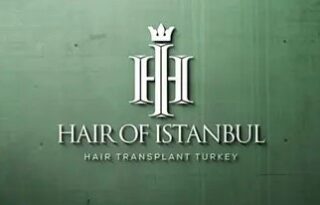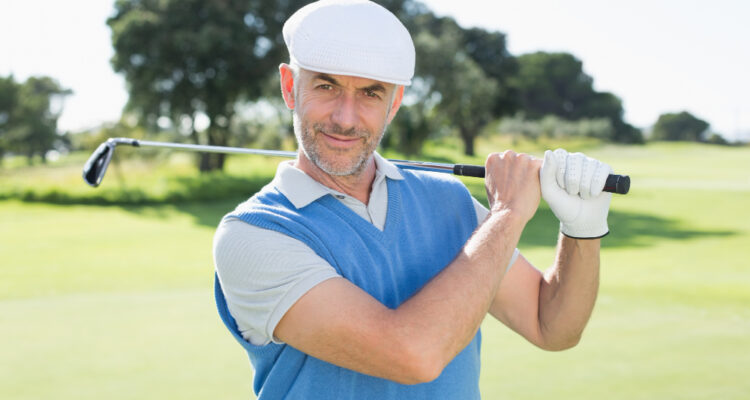For golf enthusiasts, the thrill of swinging their clubs and walking the lush greens is an unmatched experience. It’s no surprise then that many avid golfers are eager to return to the course as soon as possible after undergoing a hair transplant procedure. Hair restoration surgery has become a popular solution for those looking to regain their confidence by addressing hair loss, but it’s essential to balance the excitement of sporting a new, fuller head of hair with the need for proper recovery.
In this article, we’ll explore the timeline for resuming golf after a hair transplant, discuss the factors that influence recovery, and provide tips for safely returning to the golf course.
By understanding the hair transplant recovery process and taking necessary precautions, you can enjoy your favorite pastime without compromising the success of your hair restoration journey. So, let’s dive in and get you back on the course with a swing that’s as smooth as your new locks!
Teeing Off After Hair Transplant: A Timeline for Recovery and Golf
Hair transplant surgery, whether it’s Follicular Unit Transplantation (FUT) or Follicular Unit Extraction (FUE), is an effective solution to address hair loss. However, proper post-operative care and recovery are crucial to ensure the success of the procedure. Golf, as a physical activity, can impact the healing process, making it essential to follow a suitable timeline before hitting the greens again.
The renowned Hair of Istanbul (HOI) clinic, a pioneer in the hair transplant industry, has recently expanded its presence with a new branch in Dubai. This world-class facility continues to lead the way in hair restoration techniques and patient care, and their team of experts share valuable insights on how to safely return to playing golf after undergoing a hair transplant.
Here’s a breakdown of the post-hair transplant recovery timeline, along with recommendations for when it’s safe to resume golf:
| Timeframe | Recovery Stage / Considerations | Golf Activity |
| Day 1-4 | Immediate post-surgery period:
· Swelling, redness, and sensitivity around the transplant area · Avoid direct sunlight and strenuous activities |
Avoid playing golf and any physical activities |
| Day 5-14 | Grafts start to secure:
· Crusting and scabbing may occur · Sensitivity decreases but still present |
Gentle putting practice; avoid full swings |
| Week 3-4 | Most scabs fall off:
· New hair growth may begin · Reduced sensitivity and risk of dislodging grafts |
Gradually increase golf practice intensity |
| Month 1-2 | Hair shedding phase:
· New hair growth continues · Most physical activities can be resumed without restrictions |
Full return to golf |
Please note that this is a general guideline, and individual recovery times may vary. Always consult with your surgeon or healthcare provider to determine the best timeline for your specific case.
During the initial weeks following your hair transplant surgery, it’s essential to protect the grafts from any trauma or tension, as this could lead to graft dislodgment or reduced growth. As you return to golf, be mindful of your recovery progress and adapt your practice accordingly. By adhering to the recommended timeline and taking necessary precautions, you’ll be able to enjoy the sport you love while nurturing your new hair on your head.
Tips for a Smooth Transition Back to Golf after Your Hair Transplant
Easing back into your golf game after a hair transplant can be both an exciting and cautious experience. As you take the necessary steps to protect your newly restored hair, it’s essential to approach your return to the golf course with care and consideration. Here are some tips for a smooth transition back to golf, ensuring you can enjoy the sport while safeguarding the success of your hair transplant:
- Follow your doctor’s advice: Always consult your surgeon or healthcare provider for personalized recommendations on when and how to resume golfing after your procedure.
- Start slow: Gradually ease back into your golf routine, beginning with gentle putting practice and progressing to full swings as you heal and gain confidence.
- Protect your scalp from the sun: Wear a hat or apply sunscreen with a high SPF to shield your scalp from harmful UV rays, particularly during the first few weeks after surgery.
- Stay hydrated and maintain a healthy diet: Proper hydration and nutrition can support the healing process and promote healthy hair growth.
- Avoid unnecessary strain: Be cautious when lifting your golf bag or bending down to pick up your ball, as excessive strain can impact your grafts during the early recovery stages.
- Pay attention to your body: If you experience discomfort, pain, or excessive fatigue while golfing, take a break and give your body time to rest and recover.
- Monitor your progress: Regularly assess the healing process and hair growth, and communicate any concerns to your surgeon or healthcare provider.
By following these tips and prioritizing your recovery, you can confidently return to the golf course and enjoy the game you love, all while nurturing your new head of hair.
CONCLUSION
In conclusion, returning to golf after a hair transplant requires careful consideration and adherence to a suitable recovery timeline. The general guideline suggests gradually easing back into the sport over the course of one to two months, but it’s essential to consult with your surgeon or healthcare provider for personalized advice. By following expert recommendations and taking necessary precautions, you can protect your new hair while enjoying the game you love.
The Hair of Istanbul clinic, with its expert surgeon staff, continues to serve patients from all over the world, providing top-quality hair restoration services and post-operative care. Their experience and dedication to patient satisfaction make them a trusted source of guidance on safely resuming physical activities, such as golf, after a hair transplant procedure.

To learn more about Hair of Istanbul, visit here: https://www.hairofistanbul.com/



